- Zhaoxing Dong Village is located in the southeastern region of Guizhou Province, and is best known as the Drum Tower Group
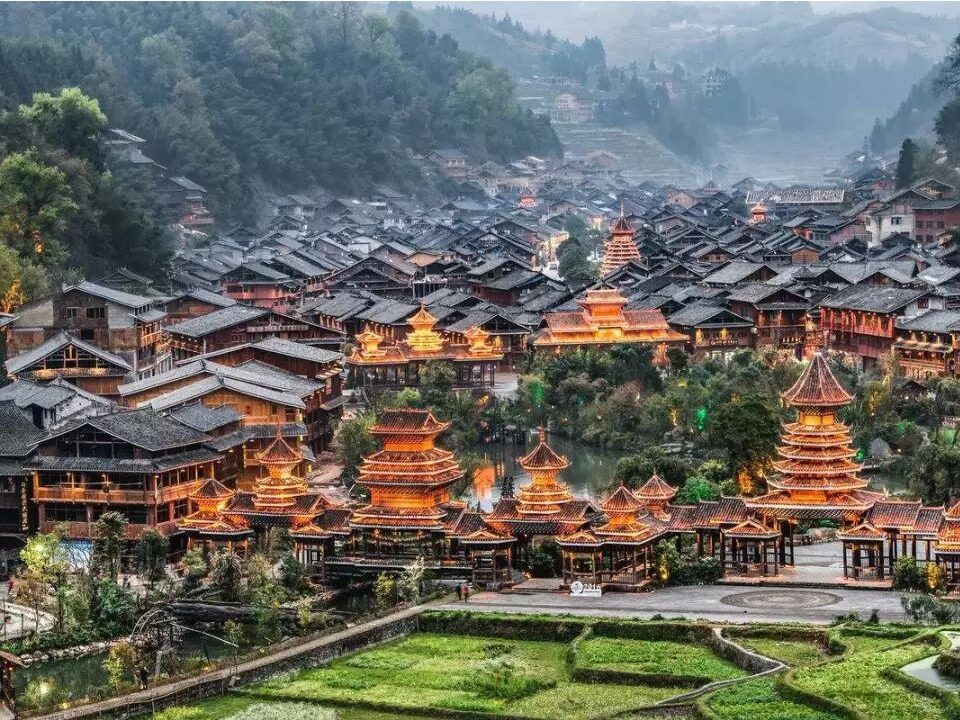
Among the lofty mountains and ridges in southeastern Guizhou, ancient and mysterious Dong villages live in seclusion here. There is a stream passing through the mountain, three or five women dressing in the river, banging their clubs on the blue Dong cloth to make a bang sound, and the terraced fields are full of greenery, and cowherds walk in the meantime. Drum towers with black tiles on wooden walls and stilted buildings with smoky smoke are lined up. He warehouses, mill houses, well pavilions, and ancient bridges are scattered among the deep mountains and white clouds, just like a finely-traveled meticulous painting.
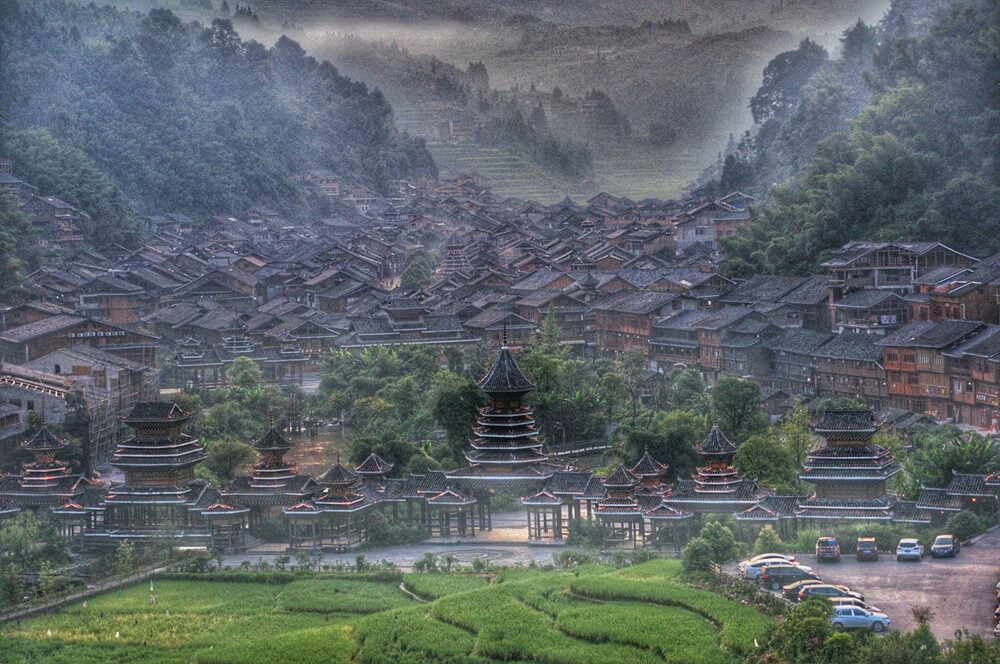
Zhaoxing Dong Village is located in the southeast of Liping County, Qiandongnan Miao and Dong Autonomous Prefecture, Guizhou Province. It is one of the largest Dong villages in China and is known as the first village in Dong Township. Drum Tower, Fengyu Bridge, and Dong Nationality Big Song are the three treasures of the Dong people. Zhaoxing Dong Village is the most famous for the Drum Tower Group, which was recorded in the Guinness Book of World Records and is known as the hometown of Drum Tower culture and art. Every festival, the Dong people call for friends, attend in costumes, gather in the drum tower, step on the singing hall, promote officials, sing big songs together, and the lusheng is melodious.
There is a Drum Tower in the depths of Baiyun
Walking into Zhaoxing and Dong Village, you see a wooden stilted building in front of you. Among the thick clouds and mists of the village, the tips of five drum towers emerge. "Liping Mansion · Customs" once recorded that the Dong people mostly built wooden buildings with dry fences, and they were mostly built by the mountains and rivers. Drum Tower is the soul of Dongzhai. According to legend, during the Three Kingdoms period, Zhuge Liang went south and set up camp in the Dong Township. For the convenience of command, he built a high pavilion in the camp, built-in bronze drums, and transmitted orders with the sound of drums, so it became a drum tower.
There is a saying among the Dong people: Before building a village, build a building first. It can be seen that the Drum Tower has a pivotal and incomparable position to the Dong people, and every Dongzhai village cannot bypass the Drum Tower for its proliferation. In the old days, there were volcanic damage and bandit harassment. Whenever there were major issues to discuss, they would go up to the top and beat the drums. Nowadays, the Dong people also gather in the Drum Tower for important matters such as stepping on the hall to worship the ancestors, welcoming guests and seeing off guests, gathering for discussion, and weddings and funerals.
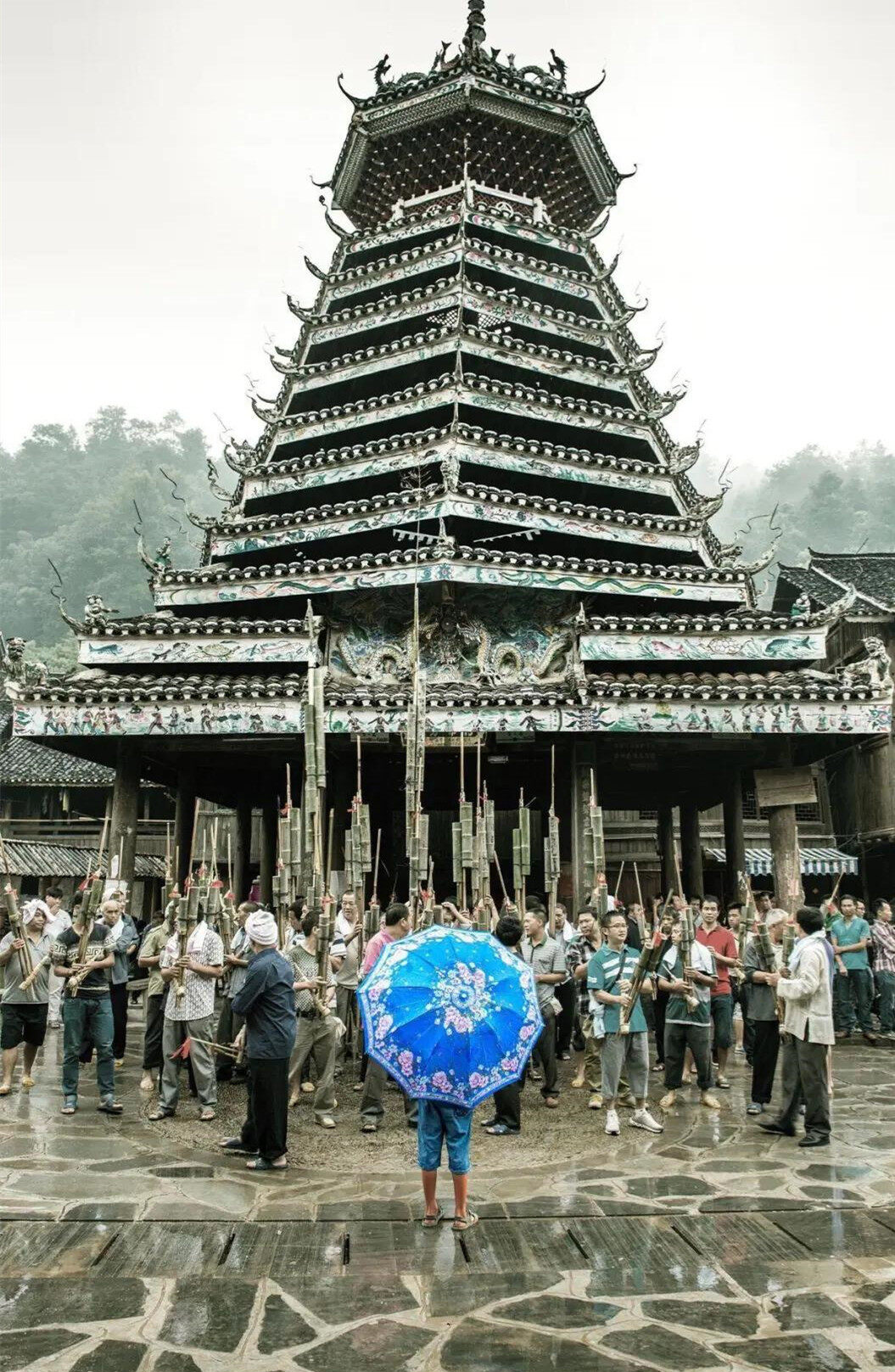
In Dong Village, there is usually one village, one surname and one drum tower. Zhaoxing Dong Village is most famous for its Drum Towers. Five drum towers of benevolence, righteousness, propriety, wisdom, and faith stand in the village. In Zhaoxing, people usually call the stockade Tuan. Among the five drum towers, the earliest one was the Lizhai Drum Tower. It was built in the 17th century and rebuilt in 1982. It is an octagonal drum tower with a double-edged pointed pagoda and a five-section gourd-shaped tower on the roof. The Zhizhai Drum Tower is The most beautiful, the flying pavilion has heavy eaves and is majestic.
The Dong people are born masters of art. The most amazing thing about the Dong Drum Tower is that the Dong people’s skilled craftsmen can turn decay into magic with a rod and a pen without drawing, and build a group of different and exquisite drum towers. It is connected by cedar chisel and tenon, without nailing and riveting, the rows are criss-crossed, the top and bottom are attached, and the layers are stacked on top of each other. After wind and frost, they are immortal for a hundred years.
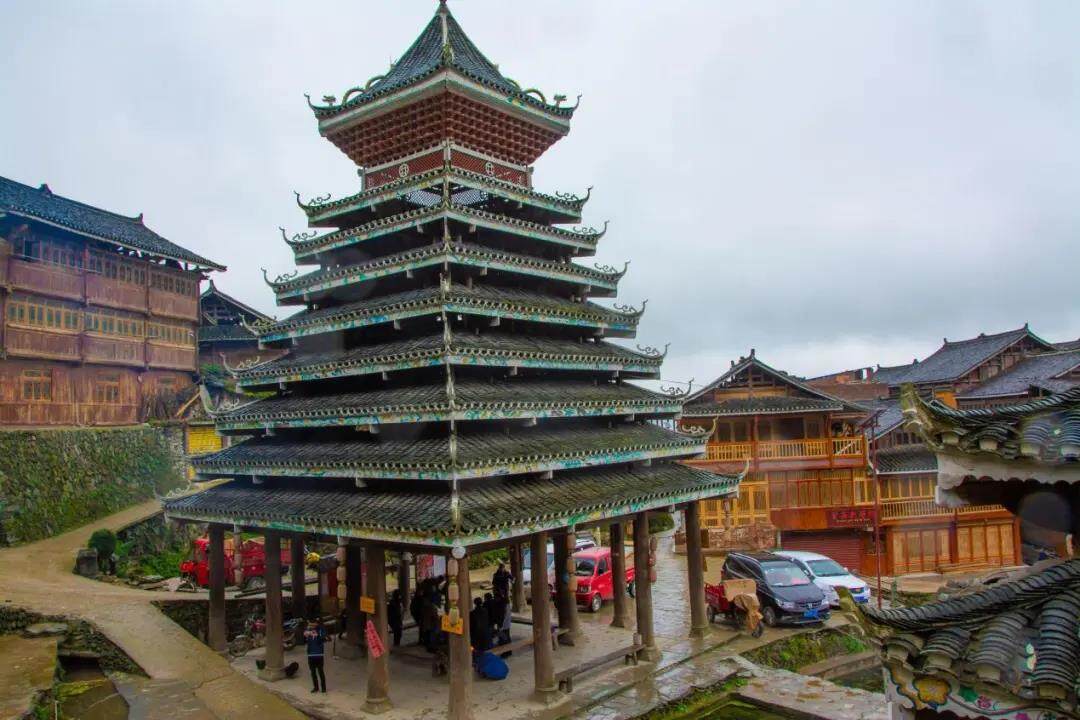
The Drum Tower is towering high in the Dong Village, and the Fei Pavilion is overhanging layer by layer, in the shape of a pagoda. The exquisitely carved birds, flowers, dragons and phoenix among the eaves and beams are exquisite and lifelike. On the top floor of the Drum Tower, a long, thin-waisted cowhide drum hangs, which is the origin of the name of the Drum Tower. The bottom is mostly square, surrounded by wooden benches, and there is a large fire pit in the middle. You can enjoy the cool in the hot summer, and you can sit around a fire to keep warm in the midwinter of the twelfth lunar month.
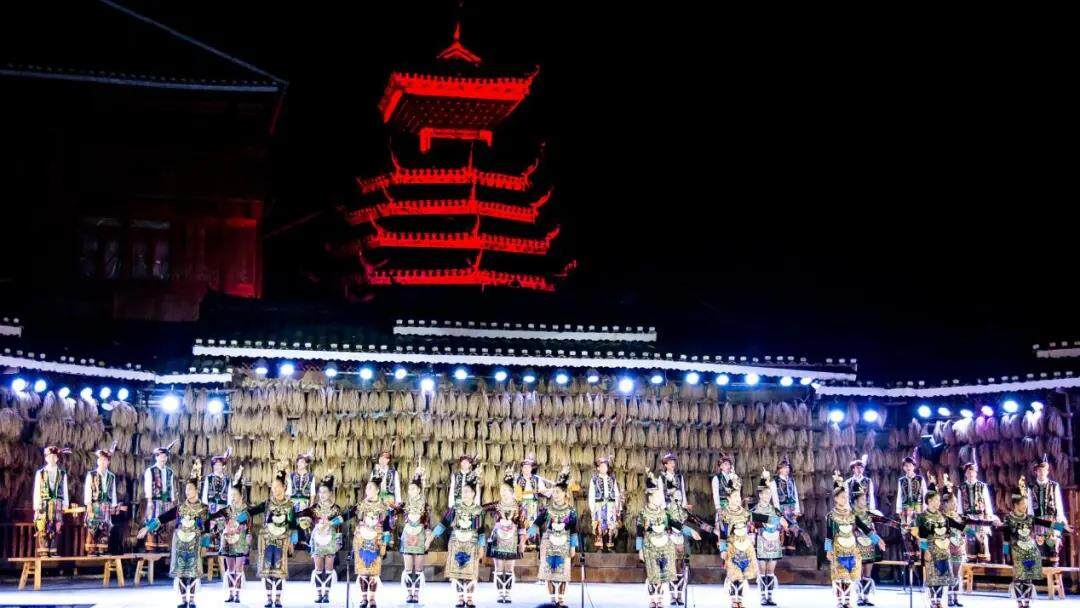
"It's still hot in August, and I rushed over to enjoy the cool after eating. Sometimes I ran to the Huaqiao to blow the air. In the midwinter of the twelfth lunar month, we would sit around the fire in the Gulou and sing big songs." The smoky Dong nationality old man sat leaning on the dry fence and said leisurely. In the evening, the August sun is still hot, and the heat is hard to dissipate. The Dongzhai Drum Tower in Zhaoxing has long been full of people, in twos and threes, shaking thin fans, smoking dry smoke, and chatting about the household.
There is Dong singing everywhere in the Drum Tower
As night fell, the Dongzhai people in the deep mountains heard the long singing, like birds calling cicadas, like high mountains and running water, from far to near, the time is faint, and the time is slow, like the sound of nature, echoing in the empty valley mountains . In the ancient Zhaoxing Dong Village, a bonfire was lit, and hundreds of people gathered in the Drum Tower to play the reeds and sing the big song of the Dong nationality.
During the Ming Dynasty, the poet Kuang Lu recorded the grand banquet of Dong people in his book "Chi Ya": "Dong people are good at music, playing the huqin, blowing six pipes, closing their eyes in long songs, and shaking their feet." , Dong language is called "Galao". For the ancient Dong people, there is no written words of their own, and Dong people’s ballads cannot even belong to any traditional music genre, but the people of the Dong people have inherited the Dong civilization and their beliefs that have been resplendent for thousands of years. The big song of the Dong nationality is dominated by a polyphonic multi-voice chorus of "single high and others low", and there is no conductor, no accompaniment, and no fixed scores. The big song of the Dong nationality without musical scores is passed on by word of mouth by generations of singers, taught with heart, and a leader of harmony. It starts from experience and has no command. However, the like-minded Dong people can sing in harmony with all the voices.
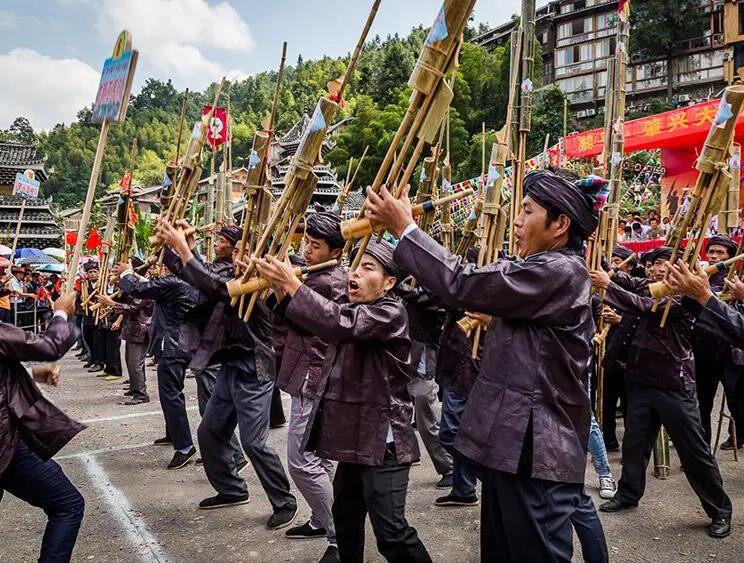
The ancient Dong people live deep in the mountains and forests, surrounded by mountains and rivers, with long streams in front of the village, ding-dongs, valleys with green trees, and birds singing and cicadas. The big song of the Dong people originated from the imitation of nature by Dong people. It was a natural sound with a human voice. The low part of the big song of the Dong nationality is like a gurgling stream, softly listening, while the high part is like a surging river, deep and high-pitched, and magnificent. The Dong folk song "The Song of Cicada Insects" is called the ancestor of a hundred songs by the Dong folk singers. The entire tune is complemented by the sound of cicadas, which will imitate the cicadas to the extreme. In addition to imitating the sounds of nature, the big songs of the Dong nationality also sing labor and love.
The Dong people often say: “Fin to support the body and singing to nourish the heart.” For the Dong people who express love by song, singing is as important as three meals a day, and there is no song or joy in a day, so Dong Township is also known as a song. Ocean. The Dong Nationality's major festivals such as the Dong New Year Festival, the New Food Festival, and the Guyu Festival. Thousands of people sing the big song of the Dong people together are staged every year in the Dong Village of Zhaoxing. Like the sea.
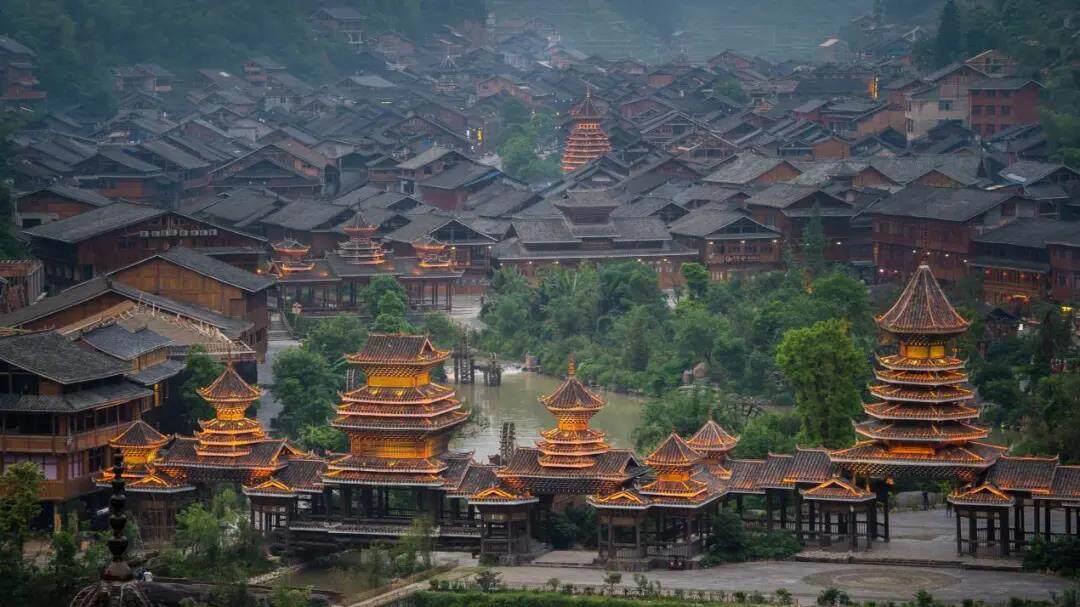
Wherever there is a Drum Tower, there is Dong singing. In the eyes of the Dongzhai people in Zhaoxing, the big song of the Dong nationality is never on the stage with shining stars, but in the Dongzhai in the depths of the white clouds, beside the Drum Tower.
Valley Rain Carnival in Dong Village
Gu Yu, known as "gradually gounen and degenerate" in Dong language, means eating udon and planting rice seeds. The ancients said that "the rain produces hundreds of grains". For the Zhaoxing Dong people who rely on the mountain to eat, Gu Yu is not only the solar term of opening up wasteland and planting and sowing rice seeds in spring, but also gives the Dong people the ardent expectation of praying for a good harvest in the coming year. Today's Guyu Festival also gives love and marriage. The beautiful meaning of Zhaoxing is the Valentine's Day for the children of the Dong nationality in Zhaoxing.
On this day of the rainy season, the grandmother of the Dong nationality in Zhaoxing went into the mountains to pick ume leaves early in the morning. This is an indispensable material for making ume leaves. After washing the ume leaves, they grind them into juice with stones. , Filter the residue, soak and cook the black juice and glutinous rice together. The glutinous rice cooked with ume leaf juice is black, translucent and color, with a natural fragrance. Dong is not separated from sourness and joy is not separated from glutinous. In Zhaoxing Dong Village, wu rice rice is equivalent to Han Chinese wedding candy, representing the joy of engagement.
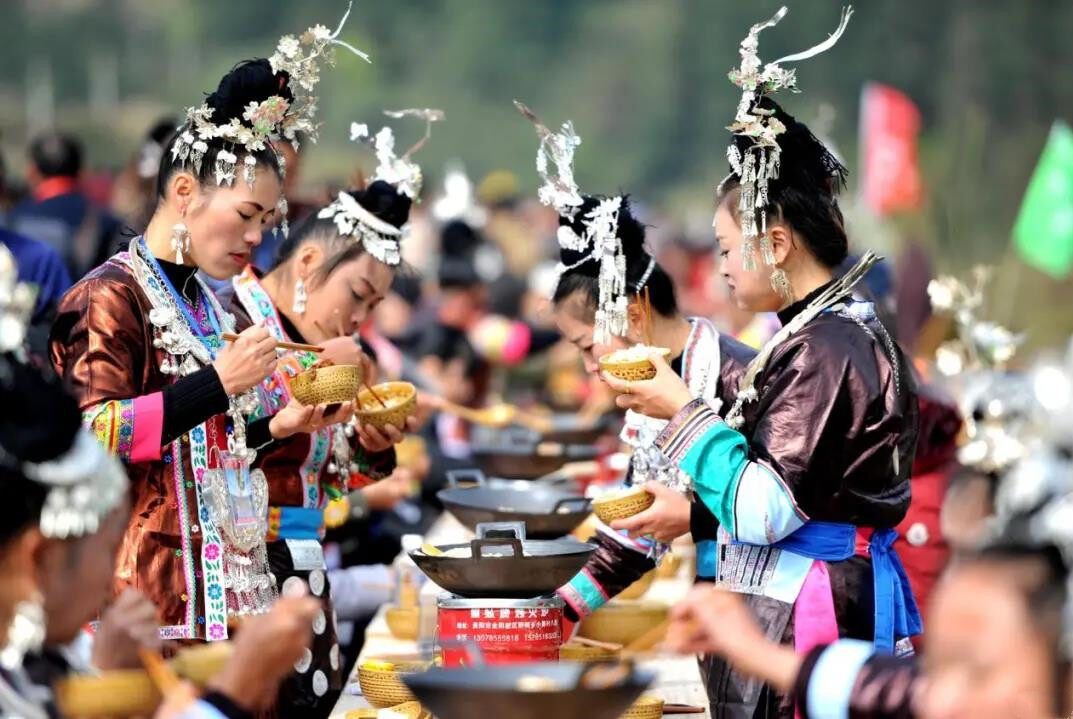
As night falls, the lanterns are beginning to come, asking for Umi, losing 卣卣, and wiping the face is the correct way to open the Zhaoxing Dongzhai Guyu Carnival. Groups of Dong people called for their friends, and they went to the woman's house to ask for omni rice with the mammoth full of candies.卣卣 is a bamboo woven product woven from Nan bamboo, mostly hand-made, and most of the Dong people use it to serve wu rice.
At the door of the woman's house, the 卣卣 was thrown into the house, while the Dong woman took the candy and filled the wu rice into the 卣卣 as a sign of courtesy. At this time, the atmosphere in the house suddenly became tense and exciting. Those who came into the house to get ud rice would be subjected to a round of "smearing". The woman and her companions prepared a black pot of soot beforehand, and wiped the pot of soot as much as possible when they were not prepared. On the face of the guy, who has the darkest face represents who is the most popular. Zhaoxing Dong Village, deep in the mountains and forests, is now immersed in the carnival and joy of the rainy season.
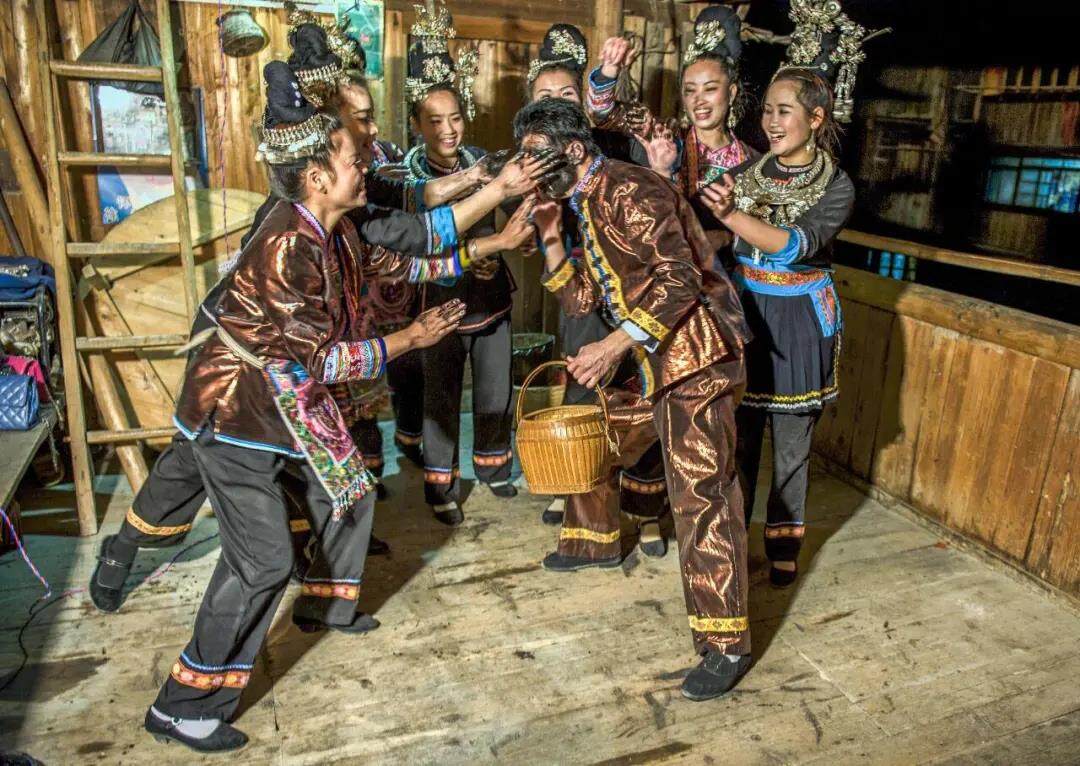
Hidden in the mountains and forests, living deep in the Drum Tower, the Dong family in Zhaoxing lost their wombs, ate black rice, sang big songs, and played the reeds, continuing the Dong people’s civilization and beliefs for thousands of years in the hidden realm of the mountains. Editor/He Yuting
Comment
 Praise
Praise
 Collect
Collect
 Comment
Comment
 Search
Search


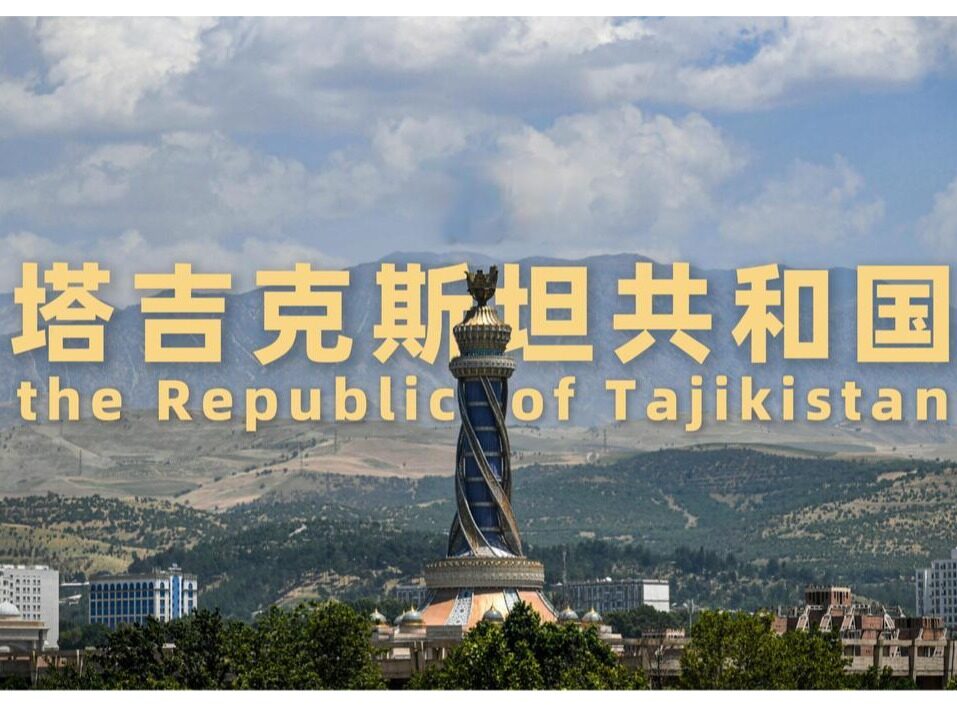

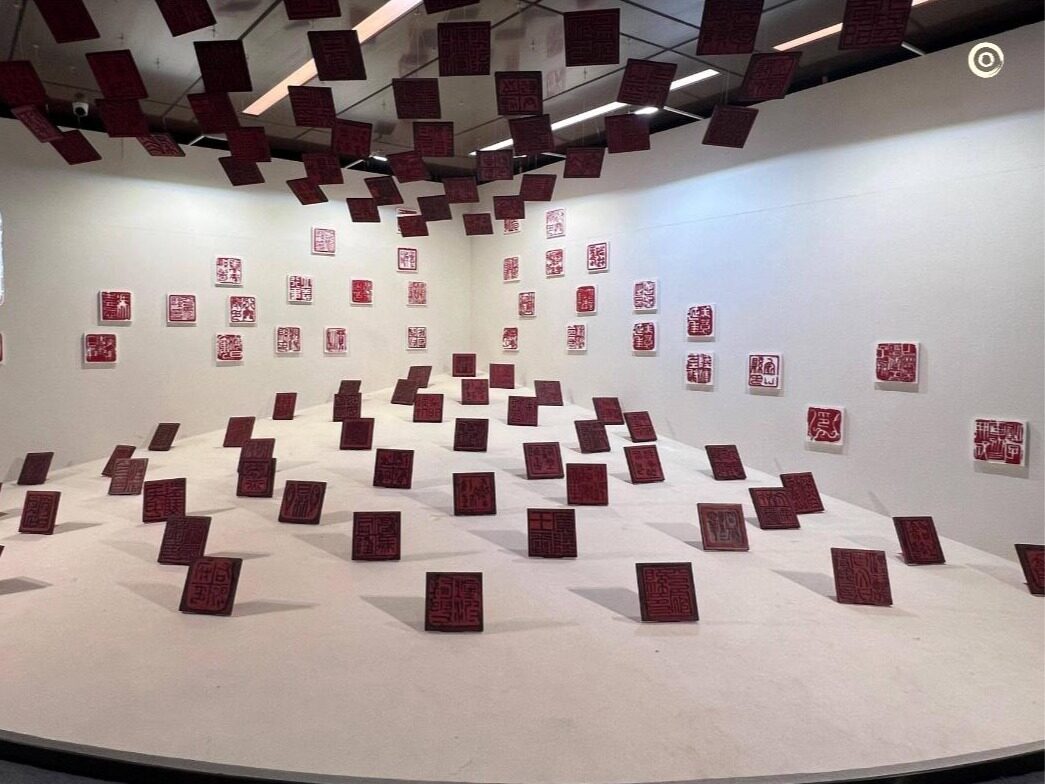
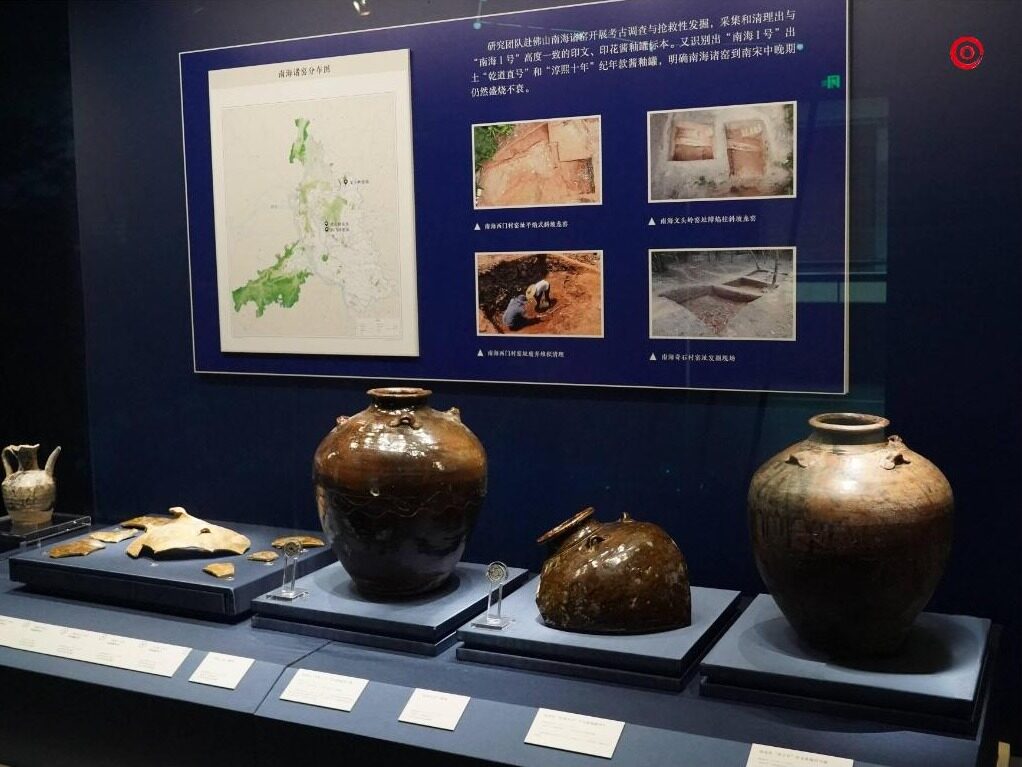








Write something~